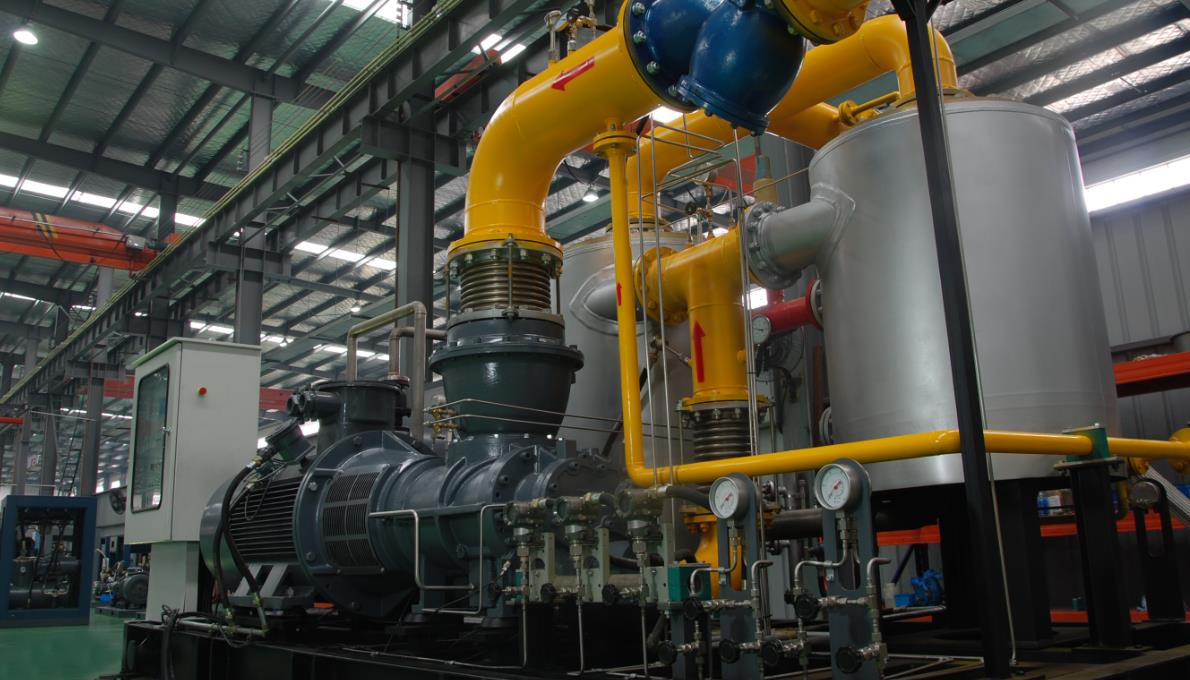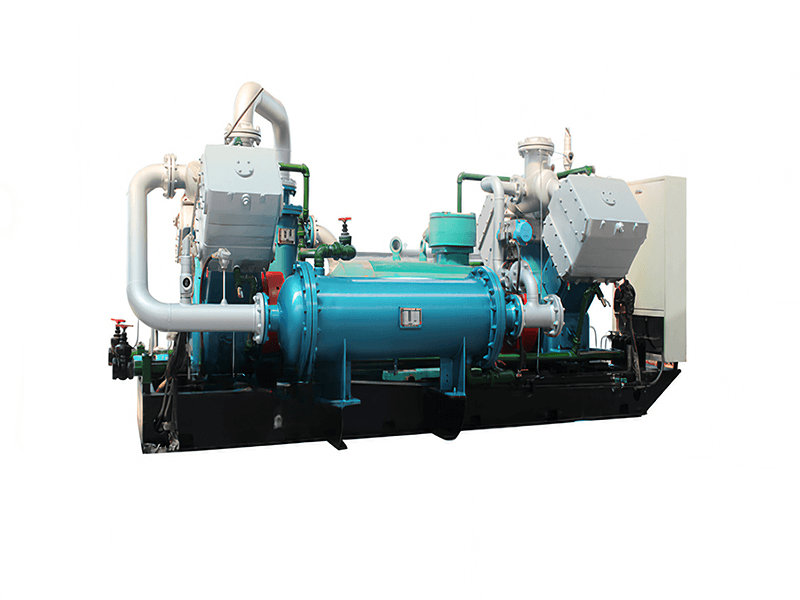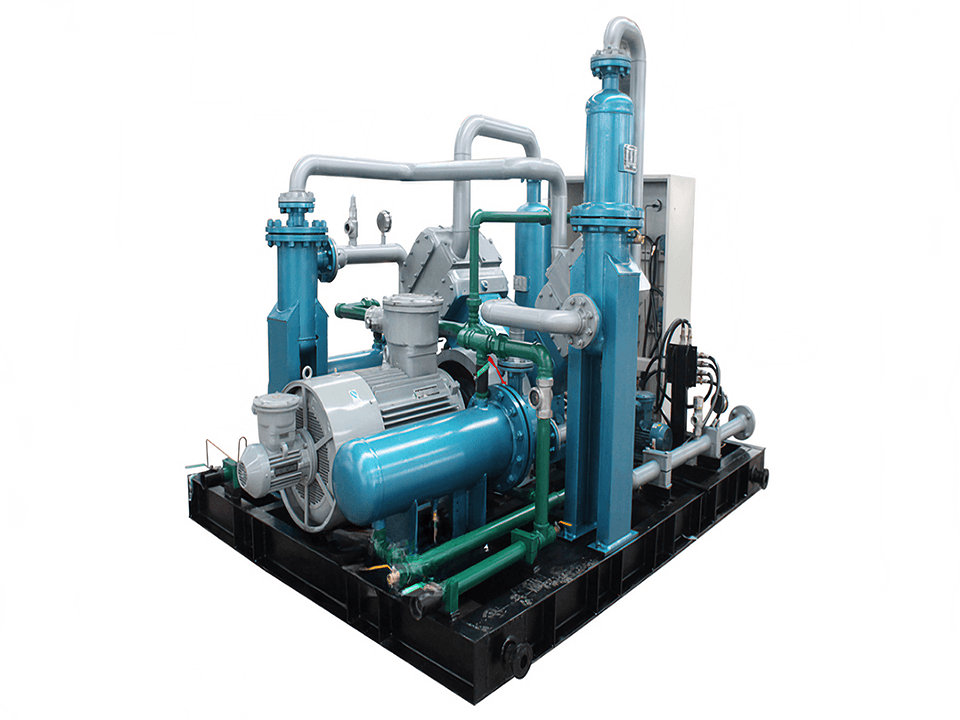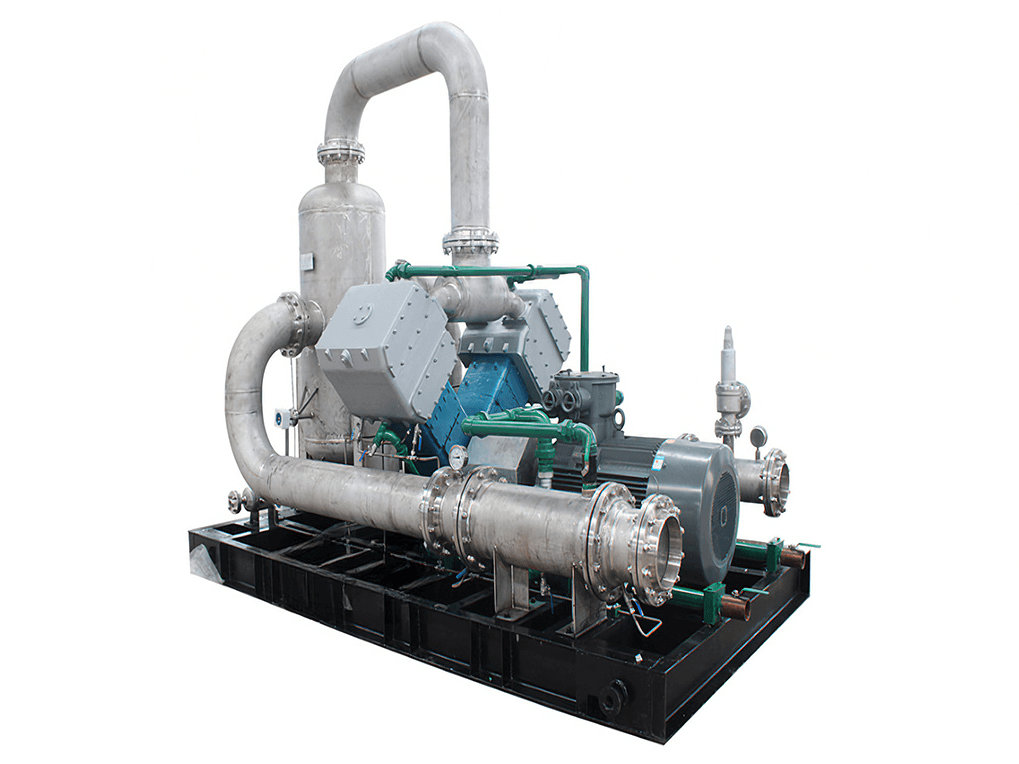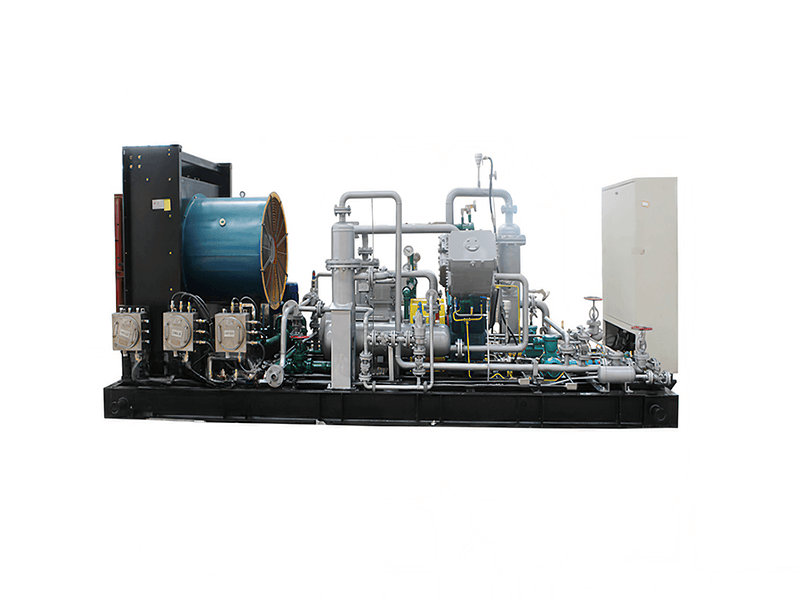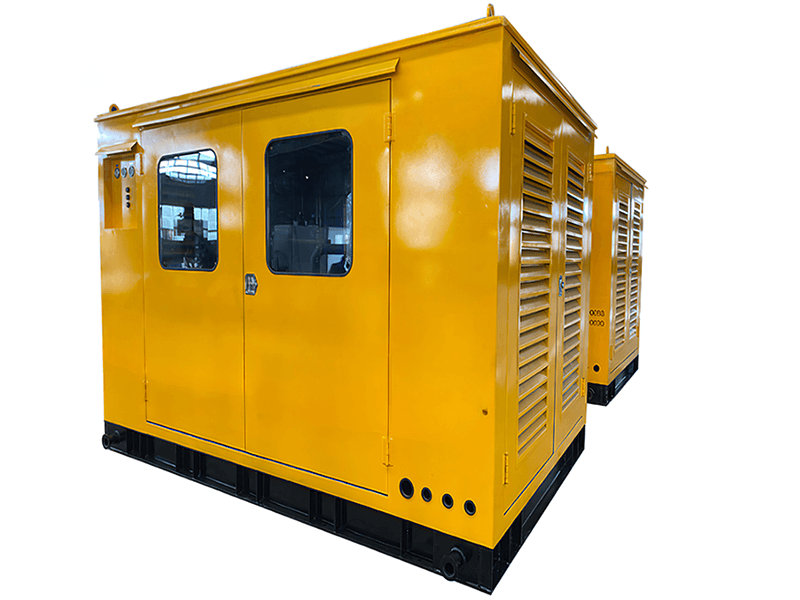Boil-off gas compressors are typically specialized equipment designed for specific industries, such as LNG (liquefied natural gas) or other cryogenic applications. Due to their specialized nature and the stringent requirements they must meet, boil-off gas compressors can be relatively expensive compared to standard compressors.
The price range for boil-off gas compressors can vary widely, starting from tens of thousands of dollars for smaller, lower-capacity units, and going up to several million dollars or more for larger, high-capacity compressors used in large-scale LNG facilities.
Factors that can influence the price include:
1. Capacity: The capacity of the compressor, measured in terms of gas flow rate or power, is a significant factor affecting the price. Higher-capacity compressors capable of handling larger volumes of boil-off gas will generally be more expensive than smaller units.
2. Compression Ratio: The compression ratio, which is the ratio of the discharge pressure to the suction pressure, can impact the design and cost of the compressor. Higher compression ratios may require more advanced and costly compressor technologies.
3. Design and Construction: The design and construction materials of the compressor can also affect the price. Specialized materials, such as those suitable for cryogenic applications, may be more expensive than standard materials.
4. Manufacturer and Brand: Different manufacturers and brands may have varying pricing structures based on factors such as reputation, quality, and additional features or services offered. Well-established manufacturers with a strong track record in the industry may command higher prices.
5. Additional Features and Customization: Optional features, such as advanced control systems, remote monitoring capabilities, or specific customization requests, can contribute to the overall cost of the compressor.
6. Market Conditions: Market dynamics, including supply and demand, competition, and economic factors, can influence the pricing of compressors. Fluctuations in raw material prices, exchange rates, and other market variables can impact the final cost.
Some general price ranges for boil-off gas compressors
1. Small to Medium Capacity Boil-Off Gas Compressor:
- Price Range: $20,000 to $100,000
- Capacity: Up to a few hundred cubic meters per hour (m³/h)
- These compressors are suitable for smaller-scale applications or facilities with lower boil-off gas volumes.
2. Medium to Large Capacity Boil-Off Gas Compressor:
- Price Range: $100,000 to $1,000,000
- Capacity: Several hundred m³/h to a few thousand m³/h
- These compressors are commonly used in mid-sized LNG facilities or applications with moderate boil-off gas volumes.
3. High-Capacity Boil-Off Gas Compressor:
- Price Range: $1,000,000 to several million dollars
- Capacity: Several thousand m³/h or more
- These compressors are typically utilized in large-scale LNG facilities or applications with high boil-off gas volumes.
Please note that the above price ranges are rough estimates and can vary significantly based on factors such as compressor capacity, compression ratio, design specifications, customization requirements, and market conditions. It is recommended to consult with industrial gas compressor manufacturer or supplier to obtain accurate pricing information for your specific project or application.
Ccompositions of boil-off gas compressor
A boil-off gas compressor system typically consists of several components and subsystems that work together to handle the boil-off gas generated from liquefied gases, such as liquefied natural gas (LNG). Here are the key components commonly found in a boil-off gas compressor system:
1. Boil-off Gas Source: The primary source of the boil-off gas is the storage tank or containment system where the liquefied gas is stored. Boil-off gas is formed when heat from the surroundings or the stored gas itself causes the liquefied gas to vaporize.
2. Gas Suction System: The gas suction system is responsible for collecting the boil-off gas from the storage tank or containment system. It typically includes suction lines, valves, and possibly a gas conditioning unit to remove impurities or contaminants.
3. Compressor: The heart of the system is the boil-off gas compressor. It is designed to compress the collected boil-off gas to a higher pressure for further processing, re-liquefaction, or utilization. The compressor can be a reciprocating compressor, centrifugal compressor, screw compressor, or another type suitable for handling the specific gas composition and flow rate.
4. Drive System: The compressor is driven by a motor or an engine, depending on the power requirements and availability of the energy source. The drive system can include electric motors, gas turbines, or diesel engines. It provides the necessary mechanical power to drive the compressor.
5. Control and Safety Systems: Boil-off gas compressor systems incorporate control and safety systems to monitor and regulate the operation of the compressor. These systems ensure safe and efficient operation, including control of gas flow, pressure, temperature, and protection against abnormal conditions such as high pressure, low temperature, or system failures.
6. Cooling and Heat Exchange: Depending on the application, the boil-off gas compressor system may include cooling and heat exchange equipment. This equipment is used to manage the temperature of the boil-off gas and optimize the efficiency of the compression process. Heat exchangers, coolers, or refrigeration systems may be employed to cool the gas or remove excess heat.
7. Discharge System: The compressed boil-off gas is discharged from the compressor into the downstream system. This can include pipelines, storage tanks, re-liquefaction units, or other utilization or reprocessing equipment, depending on the specific application and requirements.
8. Monitoring and Instrumentation: Boil-off gas compressor systems incorporate monitoring and instrumentation devices to measure and monitor key parameters such as gas flow rate, pressure, temperature, and vibration levels. These measurements help in maintaining optimal operation, detecting abnormalities, and ensuring the safety and reliability of the system.
9. Ancillary Systems: Additional subsystems may be included in a boil-off gas compressor system, depending on the specific application. These can include gas purification units, filtration systems, gas metering and monitoring systems, and other ancillary equipment to enhance the performance and reliability of the system.
10. Gas Treatment and Conditioning: In some cases, the boil-off gas may require treatment and conditioning before it can be compressed. This can involve processes such as gas sweetening to remove impurities like hydrogen sulfide (H2S) and carbon dioxide (CO2), dehydration to remove moisture, or the removal of heavier hydrocarbons. Gas treatment units, such as amine scrubbers, molecular sieves, or activated carbon filters, may be incorporated into the system.
11. Pressure Regulation and Control: Boil-off gas compressor systems often include pressure regulation and control mechanisms to maintain the required pressure levels during compression and downstream operations. Pressure control valves, relief valves, or pressure sensors are used to ensure the system operates within safe limits and meets the process requirements.
12. Heat Recovery: Boil-off gas compressor systems can incorporate heat recovery mechanisms to utilize the waste heat generated during compression. Heat exchangers or heat recovery steam generators may be employed to recover and utilize the excess heat for other purposes, such as preheating the incoming gas or generating steam for power generation.
13. Energy Management: Energy management is an important consideration in boil-off gas compressor systems. Efforts may be made to optimize energy usage, minimize power consumption, and improve overall system efficiency. This can involve strategies like variable speed drives, energy-efficient compressor designs, and integration with other energy recovery or utilization systems within the facility.
14. Safety Systems: Boil-off gas compressor systems must incorporate safety measures to mitigate potential risks. This includes the installation of safety devices, such as pressure relief valves, emergency shutdown systems, and gas leak detection systems. Safety interlocks and alarms are employed to ensure safe operation and prevent accidents.
15. Maintenance and Monitoring: Regular maintenance and monitoring are essential for the reliable and efficient operation of the boil-off gas compressor system. This involves scheduled inspections, routine maintenance tasks, and condition monitoring of critical components. Advanced monitoring systems may be used to track performance, detect anomalies, and predict maintenance requirements.
16. Environmental Compliance: Boil-off gas compressor systems must adhere to environmental regulations and emission standards. Efforts may be made to minimize the release of greenhouse gases and volatile organic compounds (VOCs) through the implementation of appropriate emission control measures, such as vapor recovery units or flare gas recovery systems.
17. System Integration: The boil-off gas compressor system is often integrated into a larger gas handling or liquefaction facility. It needs to interface with other equipment, such as liquefaction units, storage tanks, vaporizers, or distribution networks. Effective system integration ensures seamless operation and efficient transfer of gases within the facility.
18. Redundancy and Reliability: Boil-off gas compressor systems often incorporate redundancy measures to ensure uninterrupted operation. This can involve the installation of multiple compressors in parallel or the inclusion of standby units. Redundancy helps mitigate the impact of equipment failures, maintenance activities, or unexpected shutdowns, ensuring reliable operation and minimizing downtime.
19. Remote Monitoring and Control: Boil-off gas compressor systems can be equipped with remote monitoring and control capabilities. This allows for real-time monitoring of system parameters, performance, and alarms from a centralized control room. Remote access enables operators to take corrective actions, make adjustments, and troubleshoot issues without being physically present at the compressor site.
20. System Flexibility: Boil-off gas compressor systems may be designed with flexibility in mind to accommodate varying operating conditions and changes in demand. This can involve adjustable compression ratios, variable speed drives, or the ability to handle different types of gases. Flexibility allows the system to adapt to changing requirements and optimize performance.
21. Integration with Control Systems: Boil-off gas compressor systems can integrate with a facility's overall control system, such as a distributed control system (DCS) or a supervisory control and data acquisition (SCADA) system. Integration enables seamless communication, data exchange, and coordination with other processes and equipment within the facility for efficient overall operation.
22. System Optimization and Simulation: Advanced simulation tools and optimization techniques can be employed to analyze and optimize the performance of boil-off gas compressor systems. These tools can help identify potential bottlenecks, evaluate different operating scenarios, and optimize system parameters for improved efficiency, energy usage, and cost-effectiveness.
23. Training and Maintenance Support: Proper training and support for operators and maintenance personnel are crucial for the effective operation and maintenance of boil-off gas compressor systems. Training programs, documentation, and access to technical support can ensure that personnel are well-equipped to operate, monitor, troubleshoot, and maintain the system effectively.
24. Compliance with Industry Standards: Boil-off gas compressor systems need to comply with relevant industry standards, codes, and regulations to ensure safe and reliable operation. These standards can include those related to design, construction, electrical safety, emissions, and environmental protection. Compliance ensures that the system meets accepted industry practices and requirements.
25. Continuous Improvement: Boil-off gas compressor systems can benefit from a continuous improvement approach. This involves regularly evaluating system performance, identifying areas for improvement, and implementing enhancements or upgrades. Continuous improvement efforts can lead to increased efficiency, reduced energy consumption, improved reliability, and enhanced overall system performance.
These aspects such as redundancy, remote monitoring, system flexibility, optimization, compliance, training, and continuous improvement, which are essential for the successful operation of boil-off gas compressor systems. By considering these factors, operators can maximize the efficiency, reliability, and safety of the system while meeting the specific needs of their application.



